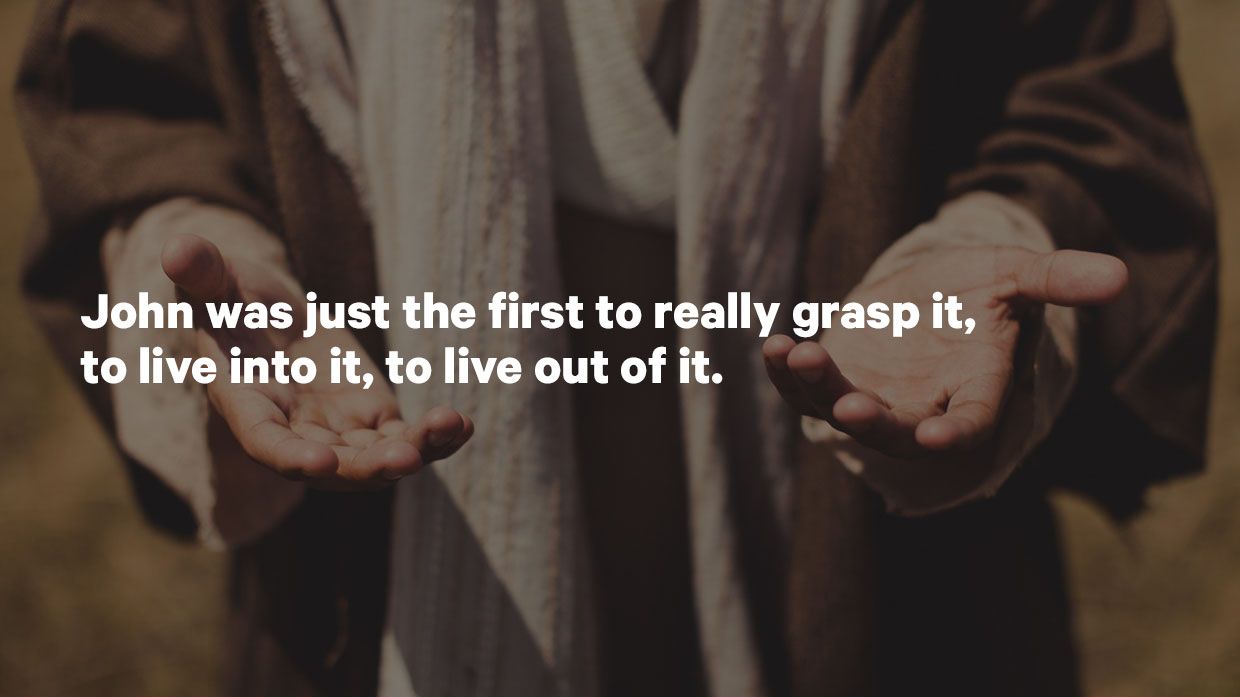The apostle Paul had no reason to hate Christians before he became one. Read that again, slowly.
Before his conversion, Paul's loathing of Christians was purely ideological. The only Christian we know he met face-to-face, pre-conversion, was Stephen, a man full of the Holy Spirit, wisdom, faith, and whose face was like that of an angel. But Paul hated him and all he represented. His hate was rooted in nationalism, dogmatism, chauvinism, and his own private demons.
No Christ-follower had hurt Paul personally. No one had given him grounds for such violent enmity. He was the original ISIS member. Then he became a Christian.
After that, he had many reasons, deeply personal ones, for despising other Christians: their pettiness, foolishness, meanness, gullibility. Paul's letters reveal how fractious, mulish, and small-minded Christians could be. But he loved them, lavishly. His love was rooted in grace, in his own story of divine love and how it found him, slayed him, raised him, made him new.
John was just the first to really grasp it, to live into it, to live out of it.
I left pastoral ministry two years ago after 24 years in the harness. I now teach pastors. I typically sit down each week, one-on-one, with two or three, to talk, pray, co-discern. Certain themes recur. One is that pastoring is hazardous to one's own soul. The fruit of the Spirit—love, peace, joy, and the rest, which are the wealth we bring to the task—are daily put at risk by the hard soil, acid rain, and bitter winds that churches can produce.
I am convinced that a pastor's greatest discipline is to know, above all, that you are "the one Jesus loves." That phrase is John's thrice-repeated self-description in his Gospel. But John also describes Lazarus this way. Later, in his first letter, he says, "We love because he first loved us," and "Behold what manner of love the father has lavished on us, that we should be called children of God. And that is what we are!"
John didn't exclusively claim the title "The One Jesus Loves." He was just the first to really grasp it, to live into it, to live out of it. All along John had been recording the words and acts of Jesus—showing his disciples the full extent of his love by washing their feet, even those of Judas; calling these men his friends and offering up his life for them; loving them just as the Father had loved him; inviting and commanding them to abide in this love.
I think the penny dropped first for John: Oh my goodness. He means me! Even me! I am the one Jesus loves!
That's the only explanation of how and why John went from being a "Son of Thunder," a rash, brash, angry man, to being the "apostle of love." He found out that he was the one Jesus loved.
As did Paul. As do all those whose love exceeds their own.
Recently I was speaking at a church retreat. I thought it was going okay, but after my second talk a young man with Down Syndrome walked over to me.
He said, "You bowing" [it rhymed with towing].
"Pardon?"
"You bowing. We all falling asleep."
"I'm boring you?"
"No. You bowing everyone. Everyone falling asleep."
"What do you suggest?"
"Tell jokes. Pastor Barry tells jokes."
Initially I thought the young man might be Jesus in disguise, but then I thought Jesus probably wouldn't command me to tell jokes. Later I realized that telling jokes wasn't really what the young man was asking. He was asking me to care about him the way Pastor Barry does. To include him. To invite him in. To make the gospel available to him.
He was asking me to love him out of the overflow of the love with which I've been loved.
So now, every time I get up to speak, I have a little mantra: Don't be bowing, Buchanan. Be the one Jesus loves, and let it flow.
Mark Buchanan teaches pastoral theology at Ambrose Seminary in Calgary, Alberta.
Copyright © 2015 by the author or Christianity Today/Leadership Journal. Click here for reprint information on Leadership Journal.










